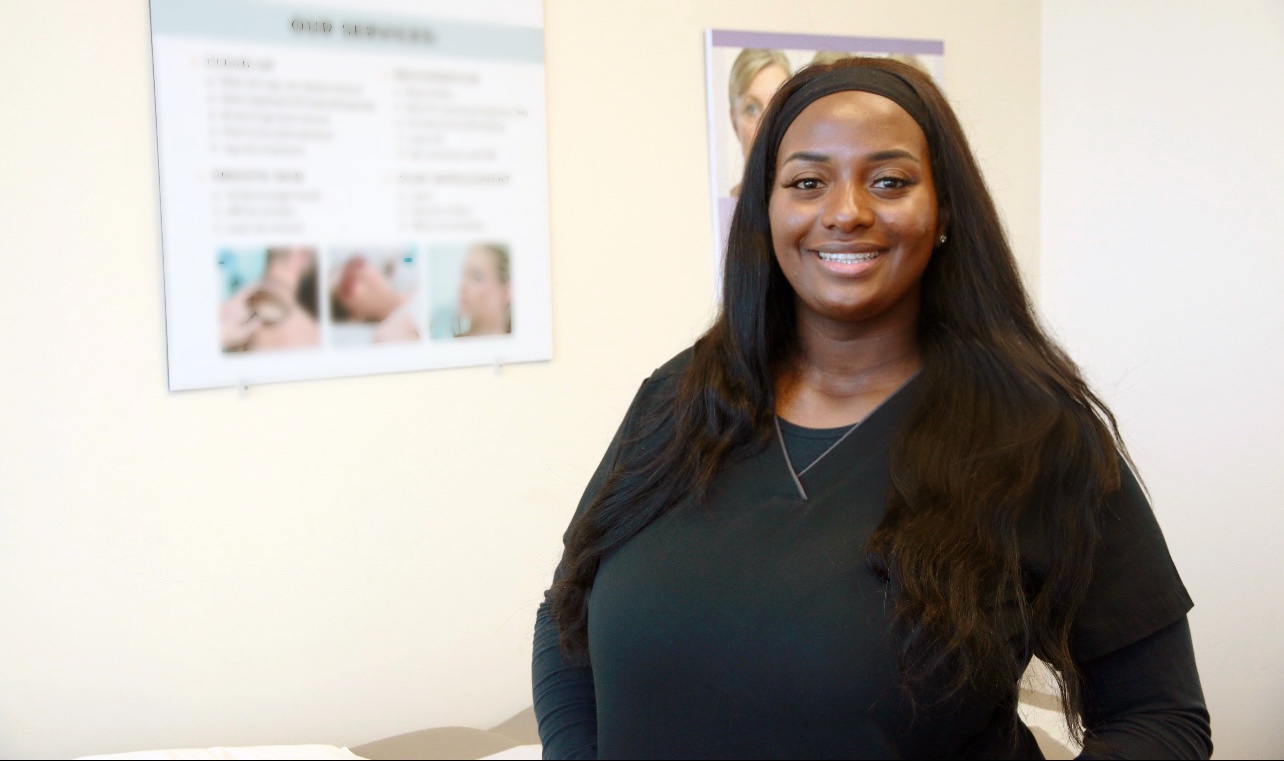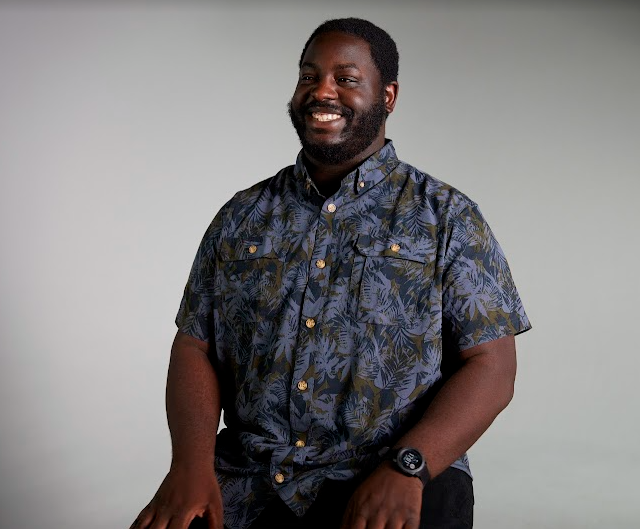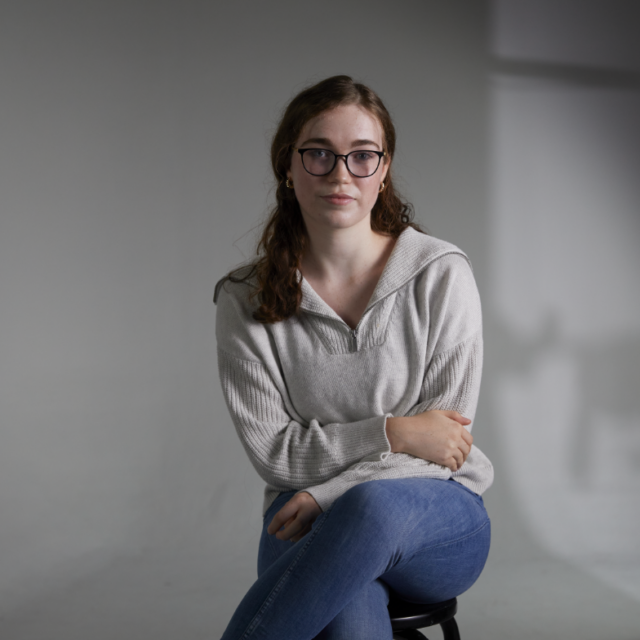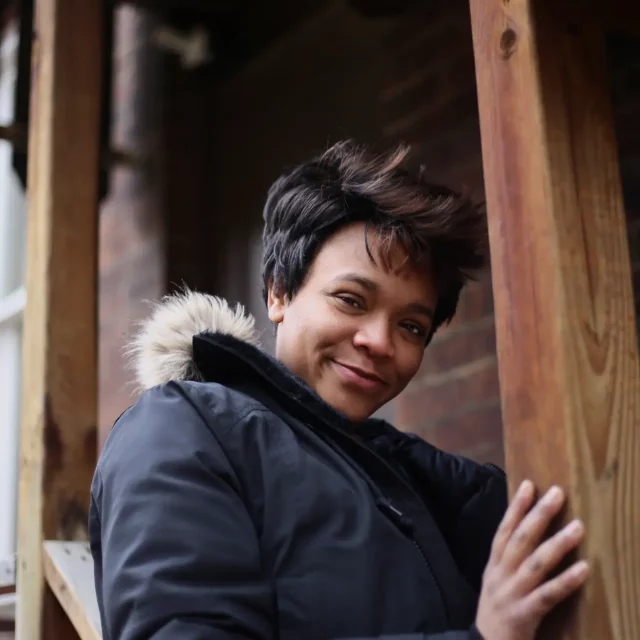In honour of Black History Month and this year’s theme of Black resistance, we’re sharing powerful stories of resilience from former youth in care, our partners serving Black and biracial youth and others from across our network. Read the first installment in this series.
For the second installment of our Black History Month series, we spoke to Rachael, a former youth in care and current member of Children’s Aid Foundation of Canada’s Young People’s Advisory Council (YPAC).
During her time in care, Rachael benefitted from Foundation-funded programs like Soul Journey, an initiative delivered by Children’s Aid Society of Toronto that helps Black youth in care learn about Black history and culture, and CHEERS, a mentorship program specifically for Black youth in the process of transitioning out of care into independence.
Now 25, Rachael is a Registered Practical Nurse working at a level-one trauma centre working in various trauma wards and inpatient psychiatry programs. Rachael is currently pursuing her degree to become a Registered Nurse (RN) and has also received Foundation scholarships along her post-secondary education journey.
We sat down with Rachael to learn about her experiences growing up in care and how this year’s Black History Month theme of Black resistance showed up along the way:
Can you share a little bit about your journey with the child welfare system?
I was apprehended from my biological mother at the age of four, along with my twin sister and brothers due to mental health concerns. I lived in a foster home in Guelph, Ontario for almost ten years. At the age of 13, my twin sister and I were separated, and I moved to Toronto, Ontario. I lived in various group homes and foster homes before I aged out of care.
What were your experiences like as a young Black person navigating government care?
I was placed with a white foster family for almost ten years. It was a very, very lonely and isolating experience. I felt disconnected from my identity and struggled to embrace my culture, the colour of my skin and the texture of my hair for a very long time.
How did having a Black social worker and living with a Black foster family make a difference for you?
I believe having a Black social worker and foster family is crucial for the development of Black youth in care.
My social worker really pushed me to learn and embrace who I am as a woman of colour.
My foster mother, who I was placed with at 16, encouraged me to do well in school and get an education. She was a positive role model and wanted nothing but the best for me.
You had an opportunity to participate in two Foundation-funded programs for Black youth delivered by Children’s Aid Society of Toronto — Soul Journey and CHEERS. Can you tell us about your experiences with these programs?
I was in Grade 9 and living in a group home, having just moved to Toronto. My social worker informed me about this program, Soul Journey, which helps Black youth connect with Black history by taking trips to sites of historical importance in the US and Canada.
For the first time, I was surrounded by Black youth from care and by people who looked like me. I was given an opportunity to learn about my history, what Black people went through and continue to go through.
I travelled to places like New York, Detroit and Atlanta. I was able to create bonds with so many people — youth and workers, as well as foster parents. People I still talk to today.
I am truly grateful for my experience with Soul Journey and the impact it made for myself and many others.
The same worker who introduced me to Soul Journey also introduced me to the CHEERS mentorship program. CHEERS (Creating Hope and Ensuring Excellent Roads to Success) is a program for Black youth transitioning out of care into independence. I joined the CHEERS program when I was in nursing school and was connected with a Black mentor who was pursuing their masters of nursing and studying to become a nurse practitioner. I attended many CHEERS events and was eventually hired as an outreach coordinator for three years.
CHEERS is a phenomenal mentorship program and they push their mentees and mentors to become the best version of themselves. Mentorship is extremely important, especially if you don’t have a family or support system by your side.
Reflecting on your experiences, what do you think should be done differently within the child welfare system to ensure more Black youth feel empowered to succeed?
Black leaders and former youth in care need to be at the table, advocating for Black youth in care and those transitioning out of the system. There should always be someone who looks like us in spaces where decisions are being made.
You’re an advocate yourself as a member of the Foundation’s Young People’s Advisory Council. What does it mean to you to be part of YPAC?
YPAC is a safe space where I’m able to talk about my personal experiences. I’m able to sit at the table and talk about things that we can change.
For me, being part of the Young People’s Advisory Council means being an advocate for people who are in care and are not in the space to even think about what they could do.
I remember being 16; I wasn’t thinking about how I could make the system better. I think it’s our job to step in and say, “This is what we can do. This is how we can integrate change and how we can make a difference.”
How do you think this year’s Black History Month theme of Black resistance showed up along your journey?
My experiences in care, specifically when I was connected with a Black social worker, Black foster mother and programs for Black youth, showed me that it truly does take a community to help someone get to a better place.
Youth in care have gone through so much, and we’re so resilient despite the barriers we face. We continue to fight through trauma and inequality, and it’s a long ongoing process. The importance of community is how Black resistance showed up along my journey.
What advice would you give to other Black youth navigating government care?
I would advise Black youth to seek out mentors. Mentorship is extremely important and having multiple mentors through different stages of life can be very beneficial. Mentors will make sure you have a support system or connect you with the right resources so you can move forward in life. One day you won’t be a youth in care, you will be on your own and need guidance to help you effectively navigate through life.
What are you most proud of?
I am proud of my resilience to continue on in life. I really struggled throughout the nursing program and pursuing my education through the pandemic was not easy! I would also say I am proud of my healing journey. I am finally healing and moving on from past trauma I have experienced. I have stability and finally feel confident and happy in life.
Thank you, Rachael! Check back for more Black History Month articles and learn more about Children’s Aid Foundation of Canada and the young people we serve.



